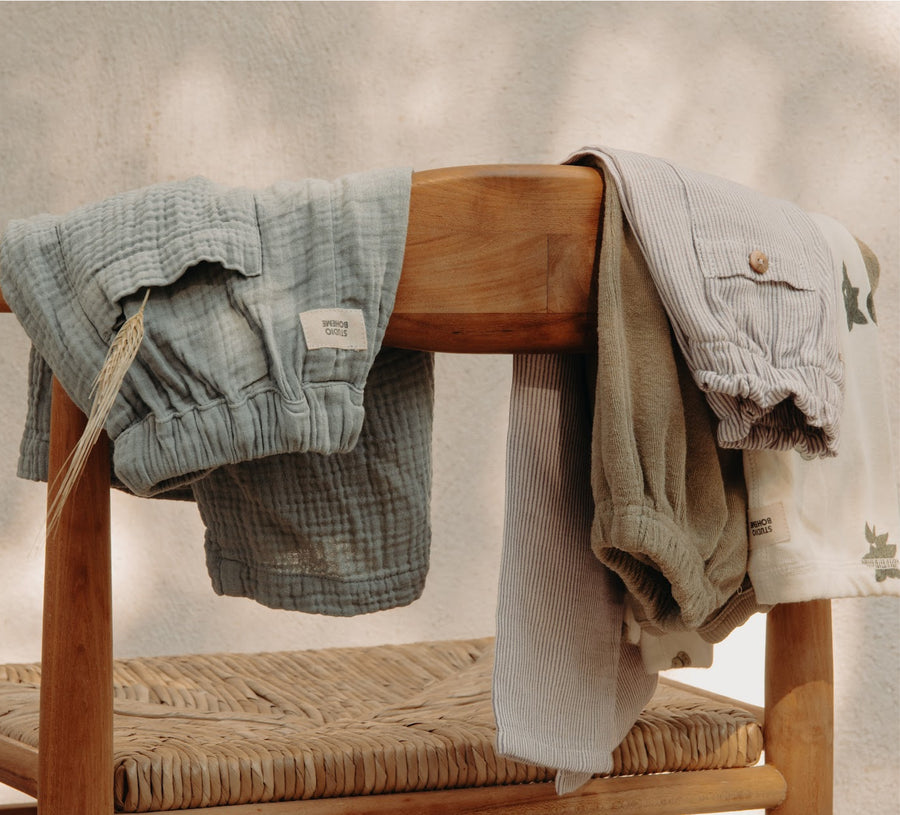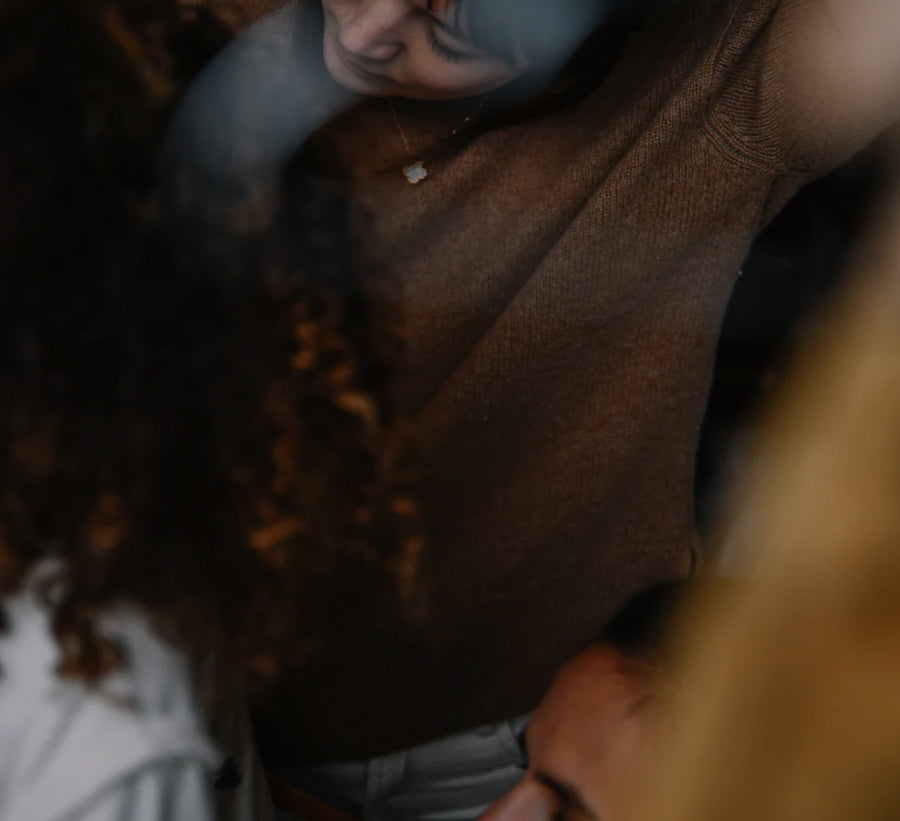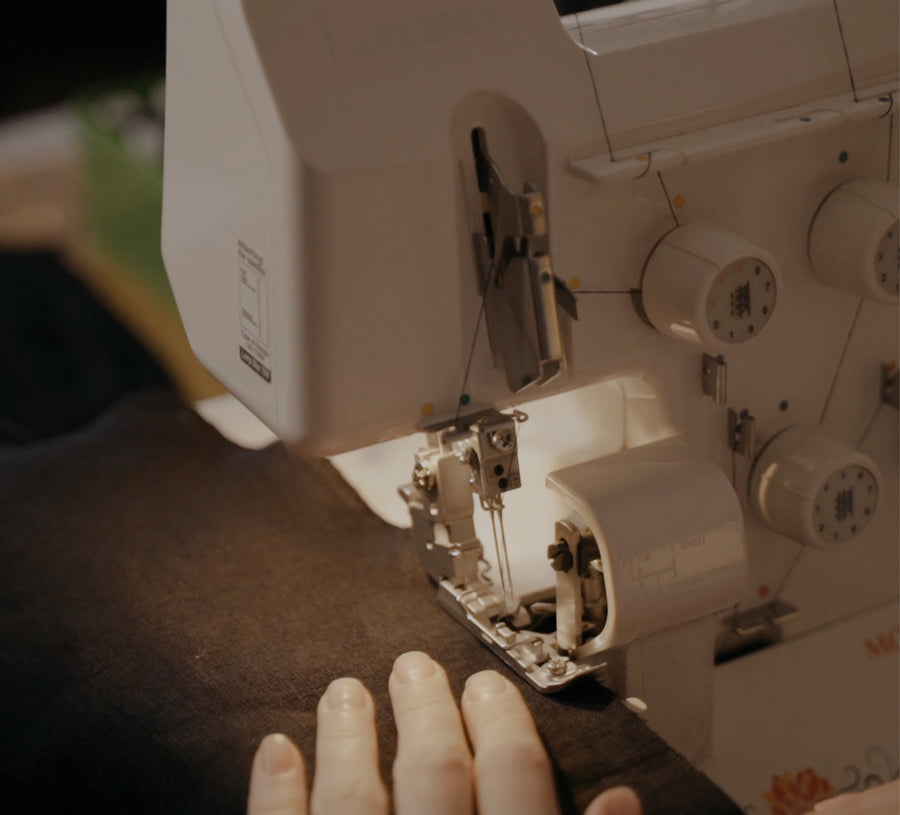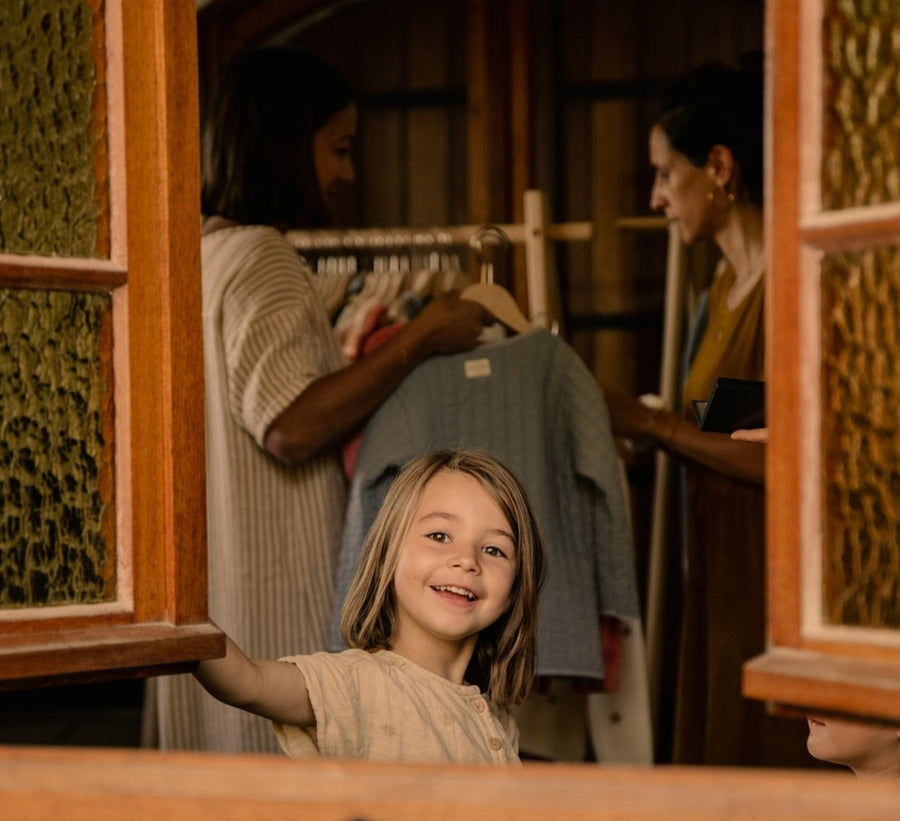
Natural and organic materials
Since the beginning, Studio Bohème has advocated the use of non-toxic textiles without the addition of chemicals. To respect babies' fragile skin, all the fabrics used are of natural origin, from organic farming, and particularly soft: Pima cotton jersey, fleece, slub cotton gauze, sponge...The materials are GOTS certified and labeled OEKO TEX standard 100, the two most reliable labels in the textile industry.

Gots & Oeko-Tex
Some explanations about the labels...
- GOTS: this label certifies not only the biological composition of the fabric, but also respect for the environment (for example by guaranteeing that no toxic or polluting products have been used) as well as very standardized working conditions.
- OEKO TEX standard 100: this label guarantees the absence of products toxic to health and the environment.

Made in Portugal
Studio Bohème has chosen to produce its collections in Europe, in Portugal, in a family workshop. Country renowned for its qualitative production and whose proximity reduces the impact of transport. Another advantage, this distance also makes it possible to build a special relationship with this partner workshop from the beginning.
“A coherent ecological approach.”

Objective 0 plastic
For several years, we have been working to ensure that all our packaging is as eco-friendly as possible. In your orders, the card, tissue paper and sticker are made from recycled and recyclable paper. We have chosen to send your orders in boxes and not in plastic envelopes. The tape that seals the boxes is now made of kraft paper. The pouches which are used to individually protect the items are made from a material similar to plastic, but recyclable and even compostable. Unfortunately, we cannot yet do without it, but we always remain on active watch to look for the least polluting packaging.







